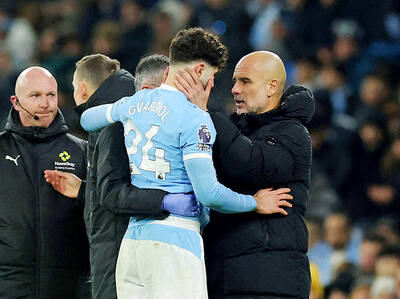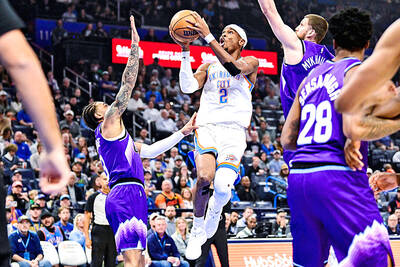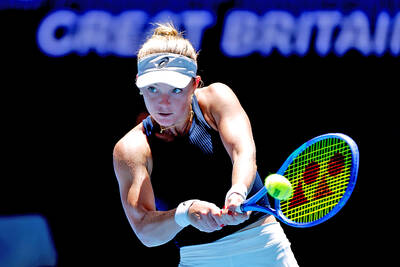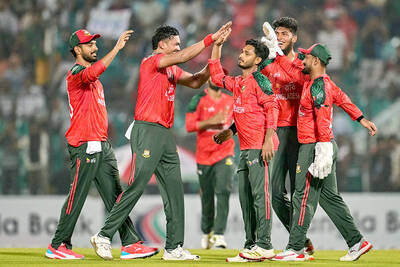Ask former All-Pro New York Giants linebacker Harry Carson what's wrong with him and he laughs. "How much time do you have?" he says. Carson, who played 13 seasons in the NFL, has a laundry list of health problems.
"Anyone who plays the game leaves with something. You learn how to deal with it," he said. "I have a disk problem that affects my sciatic nerve, back pain, numbness down my leg into my foot, spasms in my back, an atrophied posterior deltoid muscle in my right shoulder, knee pain ..."
Then there's the headaches, memory loss, and blurry vision associated with being diagnosed with post-concussion syndrome two years after he retired in 1988.
"I really don't know how many concussions I had, something like 15 to 18," he said. "We were trained to be warriors, who never wanted to sit. We played hurt. We all had that macho, John Wayne mentality. Most people get knocked around, [but] I was never unconscious. I was stunned and saw stars, and it faded to black. A lot of players don't even know they had one."
Carson, who was a Hall of Fame finalist last year, said his memory loss cost him a television broadcasting job. But he'll never forget a 1985 collision in a game against the Washington Redskins at RFK Stadium.
"The Redskins had John Riggins, who liked to use his power. He tried to run over you," Carson said. "I was a linebacker who didn't have a lot of speed. It was power vs. power. I remember hitting John solid and getting back up into the huddle. We're holding hands in the huddle. I'm the signal-caller on defense. I look over at [assistant coach] Bill Belichick and everything fades to black and comes back. He's flashing the sign -- Stack cover two -- or whatever and I can't distinguish what he's saying. So if I don't understand, my sign is to tap my helmet. He flashes again and I fade again to black and then it comes back. Then I tap my helmet."
This happens yet again.
"At this time the Redskins are already at the line of scrimmage. [Linebacker] Gary Reasons calls the play. I knew I was in trouble. Physically I was fine, neurologically I was not there. In the heat of battle, you learned to play. I stayed in the game, I probably should not have. Under those conditions, players are gonna play. It's hard for a player to come out. You suck it up and play."
Carson says he completely supports the Center for the Study of Retired Athletes. "It's extremely important, you have to have a neutral body out there to conduct credible studies, with no bias. It's tremendously helpful. We've sort of been in the dark in our own sphere. You can't often get the truth from management in the NFL."
Carson, who promised himself he never would get overweight after he retired, likes to walk the city streets. People still recognize him, even the homeless in Central Park. A thoughtful man, he still visits regularly with teammates who admire his speaking out about the dangers of concussions. But couldn't part of the depression he suffers be from not hearing the roar of the crowd and being catered to? After winning the Super Bowl, what do you do for the next 50 years?
Carson smiles. He always could take a hit.
"When I was depressed, I was still playing. It wasn't like I was not playing well. I was a captain, All-Pro, and I was depressed and I couldn't put my finger on why. I can remember going to [the Giants' medical staff] and they said, `Anything wrong?' I said, `I'm depressed and I want you to put it down.' Physically I was fine."
Carson saw a specialist in 1990, but still suffers the effects of his playing days.
"I like to think the results are due to the concussions I suffered," he said. "I have good days where I'm up and witty and other days where I'm very sluggish. I learned to deal with it. It's a trade-off."
But Carson would not trade in his Super Bowl ring or blame anyone for his medical problems.
"What you do is so special you pay the price. I can't think of many players that would say it wasn't worth it," he said. "It's not the trainers' or the coaches' fault ... concussions are the bad guy."
Carson said his playing days (1976-1988) were still the dark ages of understanding concussions. "They'd ask you what day it was," he said. "That's no true measure of what damage had been done.
"For the most part, it was my decision to go back in the game. It was a different era, there was not a whole lot of research. I don't think anybody knew how serious it was at the time.
"When Steve Young and Troy Aikman, high-profile players, got dinged, then people started to take notice. I can't talk about brain damage down the road."
Carson attended the funeral of Pittsburgh Hall of Fame center Mike Webster last September. Webster was diagnosed in 1999 with brain damage caused by multiple concussions, which set off a myriad of problems leading to his death from congestive heart failure.
"What can be done? Nothing," Carson said. "It's the nature of the game. It's a contact sport. How is technology going to stop that?
"It could be the sudden stopping of the body and the brain continues to go. Especially around the head. I don't care how much equipment you have.
"It's frustrating. But you see more and more players keeling over, and not of Alzheimer's. You can't really worry about it. The best thing you can do is live."

Manchester City have confirmed defender Josko Gvardiol suffered a broken leg in Sunday’s 1-1 draw with Chelsea at the Etihad Stadium. Gvardiol was one of two City centerbacks who went off injured in the second half, along with Ruben Dias, before Enzo Fernandez scored a stoppage-time equalizer for the visitors. The draw left second-placed City six points behind English Premier League leaders Arsenal. City, announcing Gvardiol sustained a tibial fracture to his right leg, added in a statement issued on Monday: “The defender will have surgery later this week and assessment remains ongoing to ascertain the full extent of the

MOTHER KNOWS BEST: Warriors’ coach Kerr said his 91-year-old mother criticized him for his attitude toward officials that led to his ejection from Monday’s game Shai Gilgeous-Alexander on Wednesday rescued the Oklahoma City Thunder with a game-tying buzzer-beater before finishing with 46 points in a 129-125 overtime victory against the Utah Jazz. The reigning NBA champions looked to be heading for a third straight loss after the Jazz inched into a 114-112 lead following Lauri Markkanen’s layup with just three seconds remaining in the fourth quarter. However, NBA Most Valuable Player Gilgeous-Alexander drained a superb 13-foot jump shot to tie it up at 114-114 as the buzzer sounded to send the game into overtime. Gilgeous-Alexander then took over in the extra period with nine points as the Western

Four-time Grand Slam champion Naomi Osaka yesterday got her season off to a winning start for Japan in the United Cup, after the UK’s Emma Raducanu pulled out of their singles clash with a fitness issue, while in Brisbane, Taiwan’s Latisha Chan and Wu Fang-hsien crashed out of the women’s doubles. In Perth, despite Osaka’s win, the UK took the match 2-1 with a deciding mixed doubles victory. Osaka was too strong for reserve and 276th-ranked Katie Swan, winning 7-6 (7/4), 6-1 as Raducanu watched from the sidelines. “I’m proud of how I fought,” Osaka said. “I’d never played here, it was tough.” Britain

Bangladesh will not play their Twenty20 World Cup matches in India after Mustafizur Rahman was released by his Indian Premier League team amid growing tensions between the countries, Bangladesh’s sports adviser Asif Nazrul said on Sunday. Kolkata Knight Riders said on Saturday they had released the Bangladeshi bowler after being told to do so by the Board of Control for Cricket in India (BCCI). Bangladesh are scheduled to play three Twenty20 World Cup matches in Kolkata next month, with the Feb. 7-March 8 tournament being cohosted by India and Sri Lanka. “Bangladesh will not go to India to play the